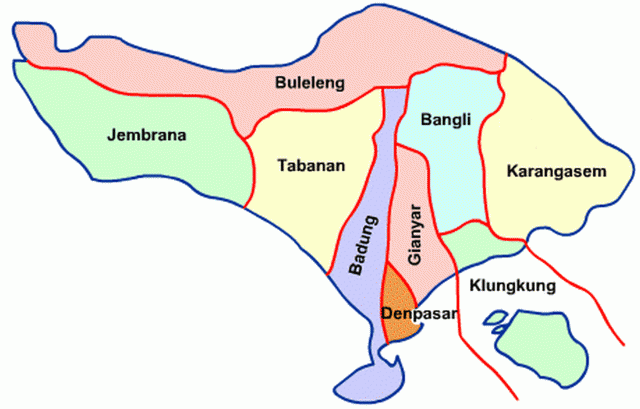The article is based on 17 years of experience in the Bali real estate market by Sky Realty Bali.
Purchasing real estate is always a serious step, especially abroad, as every country has its own specific features and legal regulations for foreigners.
Real estate in Bali, as an active tourist and investment destination, attracts not only investors but also fraudsters—dishonest intermediaries, private sellers, and developers. Over 17 years of working in the local real estate market, we've accumulated a variety of stories, ranging from surprising to shocking. Our experience shows how crucial it is to use professional services from the very beginning of the buying process.

Real Cases of Fraud
Sales Without Title Deeds
One of the many who turned to our agency for help after an unsuccessful investment was an entrepreneur named A. He purchased a villa directly from a seller who did not have legal rights to the property; the documents were forged.
Sellers and intermediaries are capable of fabricating any papers: land certificates, identity cards, ownership certificates, and so on. In A's case, we managed to reverse the process, although it took a considerable amount of time and effort.
Double Selling
Fraudsters use complex schemes to deceive even the most careful. Investor B. became our client after he turned to us after he found himself in a difficult situation: the same villa had been sold to several buyers. The scheme was designed to get deposits from all interested parties.
We managed to recover the money, but unfortunately this is not always the case.
Understating the Price in the Contract
Another common scenario is understating the price in the contract to reduce the sales tax. While this might not seem very important to the buyer and can sometimes even appear beneficial, it can lead to legal issues later on, especially when reselling the property (e.g., if it was purchased under a legal entity).
Illegal Construction and Documentation Issues
Sometimes, private sellers and development companies conceal the lack of necessary permits and licenses for construction or the fact that the property has been completed in violation of regulations. This becomes the responsibility of the new owner and can lead to significant administrative fines during inspections, annulment of ownership rights, and in the worst case, the demolition of the property.
We have repeatedly been contacted by affected investors who were sold properties based on plans and drawings of future projects that developers did not yet have legal rights to. A refundable deposit would be paid, but the land had not been purchased or registered. Construction was planned to start with funds from preliminary sales. If sales were slow, deadlines were constantly pushed back, and the local landowner could change the terms, increase the price of the plot, or revoke the deal due to non-payment within the agreed timeframe. Investors were lucky if their deposits were returned. We have resolved many such cases successfully, but imagine the additional expenses incurred by the client and the time and stress involved.
Another problem is incorrectly drafted documents. For example, a contract may be provided in foreign language, which is not legally valid in Indonesia. Often, a separate technical agreement for the building and finishing is missing. Developer mortgages are a dangerous myth since the property is not yet built and there is no collateral. Accepting payments in currencies other than rupiah at offices in other countries, paying with cryptocurrency without documenting the deposited amounts in Indonesian rupiah equivalent - all these are additional risks. The local currency, IDR, is the only legal means of payment in Indonesia, and in any legal dispute, payment in another currency is not considered.

Hidden Debts and Encumbrances
Often, sellers do not disclose existing debts and encumbrances on the property (long-term lease buyers are particularly at risk).
- Businessman S purchased a property that was under a mortgage. To simplify and expedite the process, the notary conducted the transaction using copies of documents, while the original was held by the bank until the debt was fully paid off. We helped conduct a thorough check and resolve the situation, but the process was complicated and time-consuming for everyone involved.
- Third-Party Rights. For example, if a property has multiple owners, not all may be aware of or agree to the sale. There are cases where documents are registered to a deceased person, but inheritance rights have not been confirmed. Alternatively, the property may have been allocated by the state to a family with no right to resell. In such cases, the transaction can be contested and annulled, leading to a loss of money.
- Legal Disputes. The property may be involved in ongoing legal proceedings related to ownership rights. For instance, this could involve family asset division, inheritance disputes, and other legal battles. In the case of buyer D, the issue was a divorce. Our lawyers mediated the dispute, and it ended well, albeit with significant time and financial costs.
- Significant Arrears in Taxes or Utility Payments
- Status-Related Encumbrances. The government may impose restrictions on the use of property for public interest and cultural preservation. For example, municipal, protected, or conservation areas may prohibit private ownership and rental of such properties.
.jpg)
Incomplete Properties
Selling unfinished properties with promises to complete them after the transaction is another common scam. This also includes illegal constructions with incomplete documentation or permits, which are promised to be obtained after the deal. Client E approached us after purchasing an unfinished villa. The seller failed to fulfill their obligations, and we had to file a lawsuit to recover the invested funds through the courts.
Fraudulent Landlords
Fraudsters posing as freelance agents or representatives of property owners collect a deposit for booking, the first month's rent, and a security deposit—only to disappear without handing over the keys. These scammers may use photos of actual properties taken from the internet, but they have no connection to those properties.
Hidden Defects
Sometimes, sellers intentionally conceal serious defects in the property. Buyers invest in properties that require significant additional expenses for repairs. For example, entrepreneur F came to us for assistance with a newly purchased home that had already revealed issues with water supply and sewage. After an independent inspection, we were able to secure compensation and cover part of the repair costs.
Fake Documents and False Zoning Information
There are cases where fraudsters forge official documents, such as building permits, and distort zoning information. They may present environmentally protected or agricultural zones, or land designated for farming, as suitable for constructing villas or restaurants. Potential buyers, unaware of the fraud, purchase such land and then find themselves unable to legalize their business or use the land for its intended purpose.
Sometimes, scammers provide false information about the zoning status of the land, claiming that it will be changed soon. Developers promise high returns on investment, which are often either impossible or illegal.

Land Zoning in Bali
Land zoning in Bali is regulated by administrative authorities and the land committee within the framework of the provincial regional development plan (RTRWP). Overall, zoning regulations are not frequently updated. The most recent significant changes were made in 2021 to attract foreign investment.
Main Types of Zoning:
- Green Zone: Land designated for agricultural purposes. Construction of residential or commercial buildings is prohibited on these plots.
- Yellow Zone: Land for residential construction, including villas; commercial use is sometimes restricted.
- Red Zone: Land designated for commercial activities — offices, shopping centers, banks, restaurants.
- Pink Zone: Land for tourism purposes—construction of villa complexes, hotels, retreats, resorts, and other commercial uses.
- Orange Zone: Land for mixed-use combining residential and commercial activities.
- Protected Zone: Land designated for the preservation of cultural and natural sites — temple complexes, parks, nature reserves. Construction is prohibited.
To verify the certificate status, zoning of the land, and its potential, you can contact the National Land Agency of Bali or a reliable lawyer. Without proper verification, the risks are quite high. Unfortunately, no one can guarantee a full refund or resolution of all issues.

Cases that Attracted Media Attention
In 2020, a major fraud was uncovered in Bali: local scammers were selling real estate with fake documents. Many foreign investors lost money, and even notarization checks failed to help, as the notary was colluding with the fraudsters. For fairness, cases of this scale are rare, which is why the case caused a significant stir.
Earlier, a European construction company offered attractive investment terms for two projects and raised about 1.2 million euros from over 30 investors. However, the projects never launched, and in 2017, the company declared bankruptcy. It later emerged that the collected funds were spent on the founders' personal needs, who then disappeared from the island.
Fraudulent real estate advertisements remain common in Bali. Criminals, posing as agents or property owners, create fake online listings using photos of real properties and copies of documents from the internet. Potential buyers or renters transfer deposits, only for the scammers to disappear without a trace.
Sometimes, construction companies themselves sell non-existent projects. More accurately, fake versions of legitimate construction companies—displaying counterfeit credentials, websites, and even staged construction sites. After receiving the funds, they vanish, leaving investors empty-handed.

The Popularity of the Real Estate Market in Bali
Despite the risks, the real estate market in Bali continues to attract investors. Key drivers include the ongoing growth in tourist activity and high interest from foreign buyers, especially from CIS countries. There are also many successful ventures.
Areas such as Seminyak, Ubud, Canggu, and Nusa Dua are particularly popular with vacationers, making them attractive for potential investments.
Since the island's economy relies heavily on tourism, the most profitable investments are in hotels, villas, townhouses, and apartments. There is also a growing demand for commercial real estate—office buildings, schools, cafes, restaurants, and coworking spaces—that attracts remote workers, bloggers, and entrepreneurs.
The development of infrastructure and rising land prices in recent years have sparked interest in areas like Ungasan, Bingin, Uluwatu, and Cemagi. Investors and construction companies see these regions as new opportunities for long-term investments.
Property Ownership Options in Indonesia
In Indonesia, there are several property ownership options that allow both local residents and foreigners to invest in the market. Understanding the differences between full ownership and long-term lease options is crucial for protecting investments.
Local Legislation on Foreign Ownership: Foreigners are generally prohibited from owning private property in the form of real estate. However, there are exceptions and nuances to this rule.
1. PT PMA (Penanaman Modal Asing): This is a foreign investment company registered in Indonesia. It allows foreigners to hold a construction right for up to 30 years, with the possibility of extension, and legally own and manage property.
2. Right to Use (Hak Pakai): This is granted to foreigners holding a KITAS (temporary residence permit) or other temporary residency permits for up to 30 years, with the possibility of extension. It is strictly for personal use.
3. Long-Term Lease: Foreigners can lease property for a specified period, usually up to 25-30 years, with the possibility of extension. This option is the most straightforward and common.
Restricted Zones: Some areas on the island may be restricted for any type of ownership or use by foreigners.
New Regulations: Recent regulations may include environmental standards and requirements for sustainable construction.

Protecting Yourself from Fraud
Having visited the island, you'll see that Bali is one of the few places on the modern world map where opportunities for both business and personal development are so pronounced. With the pace at which Bali is growing, it will soon become one of the world's financial and tourism hubs. Investing in real estate here is still a great idea, provided you know how to protect yourself from fraud and local contingencies.
Simple Safety Rules
- Thorough Document Verification: Always verify the authenticity of identity documents, property papers, and ownership history. Arrange for a comprehensive check by independent experts who have access to government databases and can provide a detailed report.
- Work with Reputable Agencies: Use services from agencies with a good reputation and their own legal department to handle documentation efficiently.
- Personal Inspection of Properties: Visit the properties before purchase or rental, check the condition of the building and its utilities. When buying, request the building’s technical documentation. If possible, talk to neighbors to learn about the property's history and the area's characteristics.
- Use Escrow Accounts: For payment security, transfer money to an escrow account held by a notary until all legal formalities are completed.
As experience living and working on the island shows, handling investment matters without agents is a dubious venture, akin to the saying "a penny saved is a penny earned." Seeking professional assistance from the start, rather than at the critical stage of a problem, is our strong recommendation.
.jpg)
SkyRealtyBali will help you protect your investments, time, and peace of mind.
We offer vetted properties and high-quality service to help you avoid issues and make the process of buying real estate in Bali as comfortable and secure as possible.
Contact us for a consultation or to handle your transaction with guaranteed security: 👇
📲 WA: +628154700011
💡Insta: @sky.realty.balii


You can add one right now!